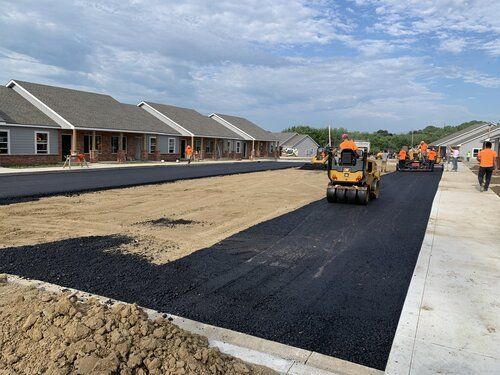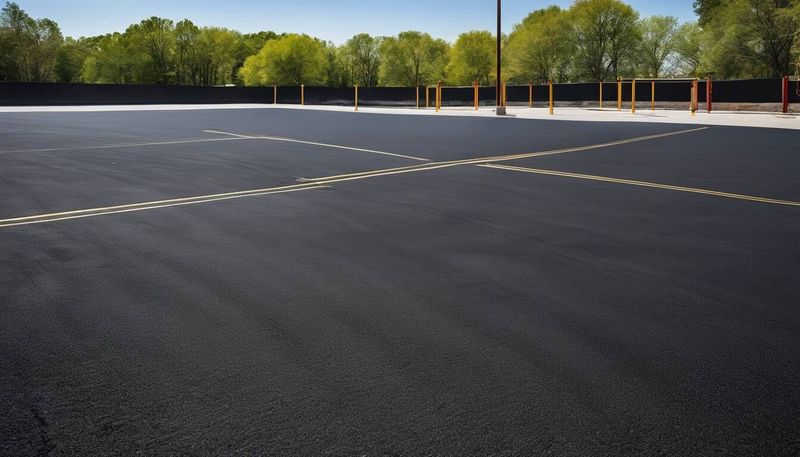Introduction
When it comes to maintaining and restoring the integrity of your asphalt surfaces, the two primary options at your disposal are asphalt resurfacing and paving companies near me repaving. Understanding the differences between these methods can significantly impact your budget, timeline, and long-term satisfaction with your driveway or parking lot. If you're grappling with which direction to take with your asphalt project, you’re in the right place. This comprehensive guide will delve deep into the nuances of asphalt resurfacing and repaving, offering a clear understanding of both processes, their benefits, costs, and recommendations for various scenarios.
Asphalt Resurfacing vs. Repaving: Which Option Is Right for You?
When considering whether to resurface or repave your asphalt surface, it's crucial to evaluate several factors including the current condition of your pavement, financial considerations, environmental conditions, and intended use of the space.

Understanding Asphalt Resurfacing
Asphalt resurfacing is often referred to as an overlay process. This approach involves placing a new layer of hot mix asphalt over the existing surface without tearing up the old pavement.
Benefits of Asphalt Resurfacing
Cost-Effectiveness: Resurfacing typically costs less than full repaving since it requires fewer materials and labor. Quick Installation: The process can usually be completed in a day or two depending on size, minimizing disruption. Preserves Existing Structure: By leaving the base intact, you maintain the structural integrity already established. Environmentally Friendly: It reduces waste by reusing existing materials.Ideal Situations for Resurfacing
- Minor surface cracks and wear. Driveways needing cosmetic improvements. Parking lots that have not experienced significant structural damage.
Understanding Asphalt Repaving
On the other hand, repaving refers to completely removing the existing asphalt layer down to its base and replacing it with new material.
Benefits of Asphalt Repaving
Complete Restoration: Addresses underlying issues such as drainage problems or significant base failure. Longer Lifespan: A new pavement layer can last longer than a simple overlay. Enhanced Structural Integrity: Ideal for surfaces that have seen better days or have suffered extensive damage.Ideal Situations for Repaving
- Severe cracking or pothole formation. Drainage issues preventing proper water runoff. Heavy commercial traffic areas where structural strength is critical.
Factors Influencing Your Decision
1. Surface Condition Assessment
Before making a decision between resurfacing and repaving, it’s advisable to conduct a thorough assessment of your surface condition using professional asphalt paving contractors who can provide valuable insights into what’s most appropriate based on visual inspections and possibly core samples.
2. Cost Considerations
Understanding the cost implications is vital:
| Process | Average Cost per Square Foot | |-----------------------|------------------------------| | Asphalt Resurfacing | $2 - $5 | | Asphalt Repaving | $4 - $10 |
Keep in mind that these prices may vary based on local rates from asphalt companies in your area.
3. Usage Requirements
How do you intend to use your driveway or parking lot? High-traffic zones like commercial parking lots may require asphalt paving more robust solutions compared to residential driveways that see lighter usage.
Detailed Comparison Between Asphalting Techniques
1. Lifespan Expectations
One key factor is how long you expect each solution to last:
- Resurfaced Pavement: Typically lasts around 5–10 years depending on maintenance practices such as sealcoating every few years. Repaved Pavement: Can last anywhere from 15–30 years if properly installed and maintained.
2. Maintenance Practices
Both methods require different maintenance approaches:
For Asphalt Resurfacing:
- Regular sealcoating (every 2–3 years). Prompt crack sealing as they appear.
For Asphalt Repaving:
- Similar sealcoating practices are essential but may also involve inspecting drainage systems regularly.
Common Misconceptions About Asphalt Projects
Misconception 1: Resurfacing Is Always Cheaper
While resurfacing tends to be less expensive upfront, if underlying issues exist (like poor drainage), it may lead to higher costs down the line if repairs are needed sooner than anticipated due to inadequate foundational support.

Misconception 2: All Cracks Require Full Repaving
Not all cracks necessitate complete teardown; many can be effectively treated through crack sealing techniques or minor patching prior to resurfacing efforts.
FAQs
1. What is typically included in asphalt paving services?
Asphalt paving services often include site preparation, grading, installation of new asphalt layers (either through resurfacing or repaving), compaction tasks, and sometimes additional features like drainage systems installation.
2. How often should I sealcoat my asphalt driveway?
For optimal maintenance practices, sealcoating every 2–3 years is recommended; however, high traffic areas may require more frequent treatments.
3. What’s the average lifespan of an asphalt driveway?
With proper care including regular maintenance like sealing and timely repairs on cracks or holes, an asphalt driveway can last between 20–30 years.
4. Can I DIY my own driveway repair?
While small cracks can be patched by homeowners using DIY kits available at home improvement stores, larger repairs or full installations should always be left to professional asphalt paving contractors for quality assurance.
5. Do all parking lots need ADA-compliant striping?
Yes! All public spaces must adhere to ADA regulations for accessibility purposes; this includes proper parking lot striping services designed for compliance with guidelines regarding accessible spaces.
6. How do seasonal changes affect asphalt surfaces?
Temperature fluctuations—particularly freeze-thaw cycles—can exacerbate cracking in paved surfaces; hence regular inspections following extreme weather seasons are crucial for preventative measures against costly repairs down the road.
Conclusion
Navigating between asphalt resurfacing versus repaving doesn't have to be overwhelming when you're equipped with knowledge about both processes' merits and drawbacks tailored specifically towards your unique situation's needs! Whether you're considering enhancing an existing driveway through resurfacing or opting for a more permanent solution via full-scale repaving—each choice carries distinct benefits worth exploring further with reputable professionals in asphalt paving services near you!
Deciding ultimately hinges on understanding how well each option matches not only current conditions but future expectations too—because a well-maintained surface today leads toward peace of mind tomorrow!